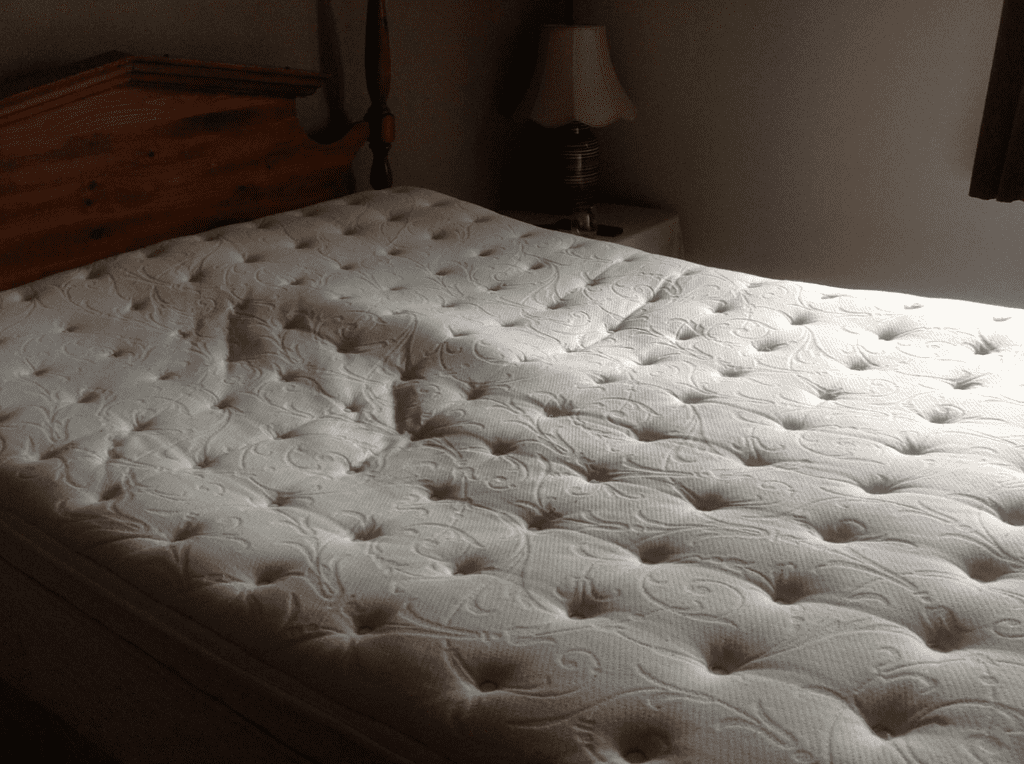How long until it’s time to say goodbye to your lumpy mattress?
As we all know, a good night’s sleep is essential for our physical and mental health. A comfortable and supportive mattress is one of the most critical factors contributing to a good night’s sleep. However, mattresses don’t last forever and must be replaced periodically to ensure we get the best possible sleep.
So, how often should you replace your mattress?
Well, the answer is not straightforward. Sleep Foundation says mattresses should be replaced every 6 to 8 years under normal conditions. However, many variables contribute to a mattress’s wear and tear, such as the mattress’s quality, the sleeper’s weight, and the frequency of use. Therefore, assessing your mattress regularly and replacing it when necessary is essential to ensure you get the best possible sleep.
Why Replace Your Mattress
As much as we love our mattresses, they don’t last forever. Over time, they lose their shape, support, and comfort, which can affect the quality of our sleep. This section will discuss the wear and tear signs indicating it’s time to replace your mattress.
Signs of Wear and Tear
- One of the most obvious signs that your mattress needs replacing is sagging. If your bed has developed a visible dip or indentation where you usually sleep, it no longer provides adequate support.
- Another sign of wear and tear is lumps or bumps. Over time, the padding inside the mattress can shift and clump together, resulting in an uneven surface that can be uncomfortable to sleep on.
- Noise is another sign that your mattress is on its last legs. If you hear creaks, squeaks, or other noises when you move around on the mattress, it’s a sign that the springs or other internal components are wearing out.
- Finally, allergies or asthma can signify that it’s time to replace your mattress. Over time, mattresses can accumulate dust mites, pet dander, and other allergens that can trigger respiratory problems. If your allergies or asthma worsen, investing in a new mattress may be time.
How Often Should You Replace Your Mattress
When replacing your mattress, knowing when the time is right can be tricky. There are many factors to consider, such as the quality of the mattress, how often it’s used, and how well it’s cared for. This section will explore the factors you should consider when deciding whether to replace your mattress and provide a recommended timeline.
Factors to Consider
There are several factors you should consider when deciding whether to replace your mattress:
- The age of the mattress: Most experts recommend replacing your mattress every 7-10 years, but this can vary depending on the quality of the mattress and how well it’s cared for.
- The condition of the mattress: If it is sagging, lumpy, or uncomfortable, it’s probably time to replace it.
- Your sleeping habits: If you’re a heavy sleeper or tend to move around often during the night, your mattress may wear out more quickly.
- Your health: If you have allergies or respiratory problems, it’s essential to replace your mattress regularly to prevent the buildup of allergens and dust mites.
Recommended Timeline
While the recommended timeline for replacing your mattress varies, most experts agree that you should replace your mattress every 7-10 years. However, this can vary depending on the quality of the mattress and how well it’s cared for. Here are some general guidelines:
| Quality of Mattress | Recommended Replacement Timeline |
|---|---|
| Low-quality | Every 5-7 years |
| Medium-quality | Every 7-10 years |
| High-quality | Every 10-15 years |
It’s important to note that these are just general guidelines, and your situation may vary. If you’re experiencing discomfort or pain while sleeping, it’s probably time to replace your mattress, regardless of age or quality.
Choosing a New Mattress
Choosing a new mattress can be daunting, but we’re here to help. Here are some factors to consider when selecting a new mattress:
Types of Mattresses
There are several types of mattresses available on the market. The most common styles include:
- Innerspring mattresses: These mattresses have a support system made of steel coils and are typically more affordable than other types of mattresses.
- Memory foam mattresses: These mattresses are made of layers of foam that contour to your body, providing excellent support and pressure relief.
- Latex mattresses: These mattresses are made of latex foam and are known for their durability and responsiveness.
- Hybrid mattresses: These mattresses combine the support of innerspring mattresses with the comfort of memory foam or latex foam.
Firmness and Support
When selecting a new mattress, it’s essential to consider the level of firmness and support you need. The right level of firmness and support will depend on your sleeping position and personal preferences.
| Sleeping Position | Ideal Firmness Level |
|---|---|
| Side Sleeper | Soft to Medium |
| Back Sleeper | Medium to Firm |
| Stomach Sleeper | Firm |
It’s also important to consider the level of support the mattress provides. A mattress with proper support will keep your spine aligned and prevent back pain.
Budget Considerations
When selecting a new mattress, it’s essential to consider your budget. Mattresses can range in price from a few hundred to several thousand pounds. While a higher price tag doesn’t necessarily mean better quality, it’s essential to invest in a high-quality mattress that will provide the support and comfort you need for a good night’s sleep.
Final Thoughts
Well, folks, we’ve reached the end of our journey on how often you should replace your mattress. We hope we’ve provided enough information to decide when to say goodbye to your old mattress and hello to a new one.
Remember, there is no one-size-fits-all answer to this question, as many factors can influence a mattress’s lifespan. However, we can safely say that most mattresses should be replaced every 6 to 10 years, depending on the type of mattress and how well it has been cared for. Some signs that it might be time to replace your mattress include sagging or lumps, visible wear and tear, and waking up with aches and pains. If you’re unsure whether to replace your mattress, consider consulting with a sleep expert or mattress specialist. Investing in a new mattress can significantly impact your sleep quality and health. So, if you’re tossing and turning overnight or waking up feeling less than refreshed, it might be time to say goodbye to your old mattress and hello to a new one.



